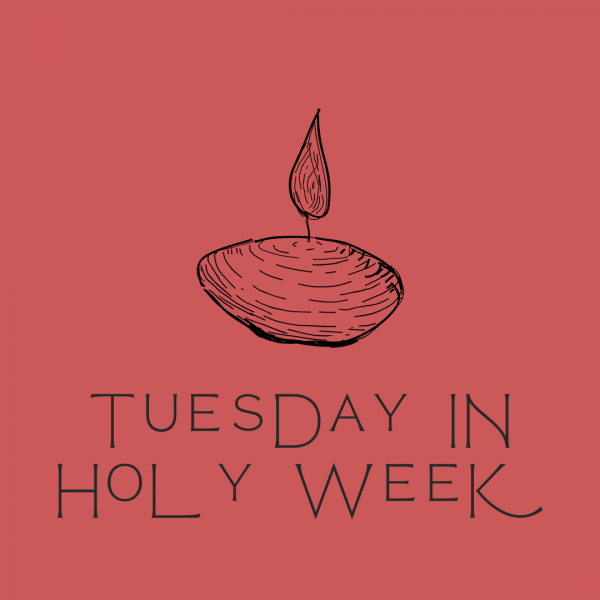Tuesday, April 4: For Our Sake

This week we will continue our look at the Nicene Creed with reflections from St. Thomas staff. Today Meg Olive-Allison offers a reflection on the part of the creed that states...
For Our Sake
“For our sake he was crucified under Pontius Pilate; he suffered death and was buried.” This is one of the hardest parts of my faith understanding. Why did Jesus die “for our sake?”
The theories about an angry God who needed to be appeased for our sin no longer work for me. Jesus was killed by the because he was a nuisance to Roman authorities and a threat to religious leadership. He did not have to be killed but had he not, then we would not have realized that death is not the end; we would not have realized the lengths that God’s love was willing to go; we would not have realized that love is greater than violence.
The poet T. S. Elliot wrote the famous line, “We shall not cease from exploration, and the end of all our exploring will be to arrive where we started and know the place for the first time.”
Recently, it has helped me to consider that perhaps God has never been the angry God that I was taught ruled in the Old Testament. Perhaps God has always been deeply concerned for human flourishing and evolving. Maybe humanity’s path is to explore its way out of the Eden of intimate relationship with the divine and to be transformed by the Holy Spirit, and the end of all human exploring will be to return to that relationship and know it again for the first time.
Anger and violence are real. But they do not have to be projected onto God. When we do that, our idea of God becomes a justification for perpetuating the cycle of hatred.
The message of Jesus is that God is not somewhere distant, sitting in heaven, but that God walks this world with us and that God experienced the horror of human hatred up close and personal. But Jesus the Christ after he died and was buried, rose again. He lives on. His love is available to transform us and the whole world. His love is the force of evolution, moving us closer and closer to being the Christ-like beings we were meant to be